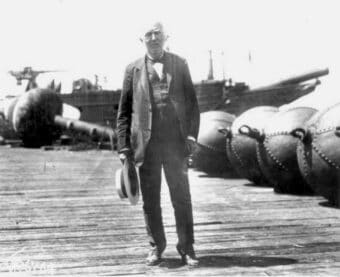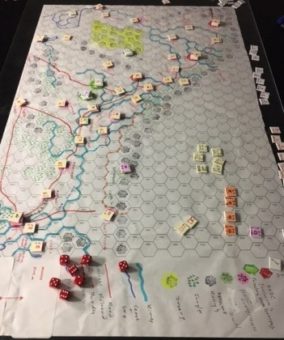The Use of Wargames in Operational Research
Dr. Roger Mason
Dr. Brian Arthur has observed the current technology eco-system is moving from “technologies that produce fixed physical outputs to technologies… that can be combined and configured endlessly for fresh purposes.” This is a challenge for military operational research where the development time for new weapons systems and tactics are decreasing along with the time necessary to research and understand them. I believe that games can be used to meet this challenge.
The first step in classic operations research is the definition of the problem. Dr. J. Zagal has conducted research into the ontology of games. He proposes that games can be used to define problems and understand meaning. I believe games can help to identify potential operational research parameters by helping to focus the research process. A game will not replace conventional operational research methodologies. Games can focus a preliminary line of inquiry, help to discover relationships within the problem, expose potential data gaps, identify possible variables, and help to break through research obstacles.

Games are useful in identifying the relationships in a data rich environment. Typical of these environments are performance evaluations of a newly discovered weapons system or a recent change in adversary tactics. By understanding the relations within these systems it is possible to determine the impact they may have on each other and the overall system or problem being reviewed.
Games can be used to identify possible variables. These variables may impact a system’s performance, degrade possible counter measures, and clarify possible outcomes. The flexibility of a game can allow researchers to rapidly evaluate the impact of variables and then modify the game to test various outcomes.
A challenge for any organized inquiry is identifying data you need as your research progresses. Games offer the opportunity for rapid exploration of related topics. The results of these investigations can identify what information may be needed as your research progresses. Games can also assist with establishing secondary lines of inquiry that may be needed to encourage progress of the primary research effort.

There are three aspects of employing games in preliminary operational research: the development of a palate of game systems, using games as an inquiry multiplier, applying games to encourage investigative breakthroughs. Researchers and theorists of game design often fall into two camps: scientists who focus on faithful modeling to tell a story and artists who prefer impressions and narratives to convey concepts. Both approaches have value.
Not every game needs a map nor does a seminar discussion always provide the answers. When employing games to support preliminary operational research it is important to develop a palate of game designs that offer a variety of options. These options, in the form of distinct game design systems, allow the researcher to select the type of game that is most appropriate for the research at hand. I will describe how to develop a basic palate of game designs.
Games are wonderful tools but they cannot do everything. It is important to understand when to apply a game in an operational research inquiry. There are investigative crossroads where a game can assist with problem solutions mid-inquiry and help to move the research to the next phase.
Games can be useful in adjunct lines of inquiry. An important part of operations research is managing the resources available. You cannot investigate everything. Interesting lines of inquiry must often be bypassed given the available resources. A game can be used to quickly evaluate a secondary issue and determine if it requires greater research emphasis.
Summary
Wargames are not the answer to every operational research problem. They can offer researchers a flexible tool that can focus the direction of the research, clear investigative roadblocks, help to further research progress, and investigate promising secondary lines of inquiry. Operational researchers should include wargaming as a part of their research toolbox.
